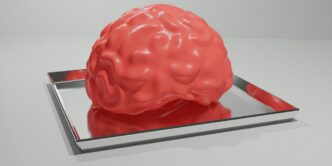The world of production is constantly evolving, and with the rise of artificial intelligence (AI) and automation, it’s changing faster than ever before. These cutting-edge technologies have revolutionized the way things are made, from streamlining processes to reducing costs and improving quality. But what exactly do these advancements entail? In this blog post, we’ll delve into the latest technological breakthroughs in production and explore how they’re shaping the industry as we know it. Introduction to AI and Automation in Production
AI and automation are two of the most buzzed-about topics in the manufacturing industry today. And for good reason: these technologies have the potential to revolutionize production, making it more efficient, more flexible, and more responsive to customer needs.
In this blog post, we’ll take a closer look at AI and automation in production, exploring how these technologies are being used today and what the future holds for them. We’ll also examine some of the challenges associated with their adoption and implementation.
Advantages of New Technologies
As the world continues to digitize, new technologies are constantly emerging that have the potential to revolutionize production. Here are some of the latest technological advances in production that are worth keeping an eye on:
- Artificial intelligence (AI)
AI is already being used in a number of industries to automate tasks and improve efficiency. In production, AI can be used for tasks such as quality control, material handling, and predictive maintenance.
- 3D printing
3D printing is another technology that is beginning to be used more in production. It can be used for prototyping and small-scale production runs of parts and products.
- Augmented reality (AR)
AR is being used in a variety of industries, including production. AR can be used for tasks such as training, quality control, and assembly line management.
- Virtual reality (VR)
VR is another technology that has a range of potential applications in production. VR can be used for tasks such as product design and development, training, and safety simulations.
Challenges Posed by New Technologies
The rapid pace of technological advancement poses both opportunities and challenges for businesses in the production sector. On the one hand, new technologies can offer significant productivity gains and cost savings. On the other hand, they can also disrupt existing business models and create new risks and challenges.
One of the biggest challenges posed by new technologies is the need for businesses to continuously adapt and evolve. For example, the rise of artificial intelligence (AI) and automation is already transforming many industries, from manufacturing to logistics. Businesses that don’t embrace these changes are at risk of being left behind.
Another challenge is managing the increased complexity that comes with more technologically advanced production processes. For example, when using AI-powered robots for assembly line tasks, businesses need to ensure that the robots are properly calibrated and monitored. Otherwise, they could end up doing more harm than good.
Businesses must also be aware of the potential security risks associated with new technologies. For instance, automated systems can be hacked or tampered with, which could lead to serious consequences such as product defects or safety hazards.
While new technologies can bring many benefits to businesses in the production sector, they also pose a number of challenges that must be carefully managed.
Examples of Companies Using AI and Automation
There are many examples of companies using AI and automation to improve their production processes. Some of these companies include:
- Ford Motor Company: Ford is using AI to help design and build cars faster and more efficiently. The company’s “virtual assembly line” uses robots and 3D printing to create prototypes of new car models, which helps the company save time and money.
- Boeing: Boeing is using AI to develop new aircraft designs faster and more efficiently. The company’s “digital twin” technology creates a virtual model of an aircraft that can be used for testing and development purposes. This helps the company save time and money on physical testing and development costs.
- Siemens: Siemens is using AI to develop new products and manufacturing processes. The company’s “digital factory” uses robots and 3D printing to create prototypes of new products, which helps the company save time and money on development costs.
- General Electric: General Electric is using AI to improve the efficiency of its manufacturing processes. The company’s “brilliant factory” initiative uses sensors, data analytics, and machine learning to optimize production lines for greater efficiency. This helps the company save time and money on production costs.
How AI and Automation are Transforming the Workplace
AI and automation are increasingly being used in the workplace to transform how work is done. These technologies can help improve productivity and efficiency, while also freeing up employees to focus on more creative and strategic tasks. Here are some of the ways AI and automation are changing the workplace:
- Automating repetitive tasks: Many workers are now using robots or other automated systems to handle repetitive tasks that would otherwise be carried out by human workers. This can include tasks like sorting and packing products, checking for quality control, and even handling customer service inquiries.
- Enhancing decision-making: AI is being used to help employees make better decisions by providing them with data-driven insights. For example, retail workers can use AI to recommend products to customers based on their past purchase history, while financial analysts can use AI to identify trends and patterns in data sets.
- Collaborating with humans: In many cases, AI is being used to supplement human workers rather than replace them altogether. For instance, chatbots can be used to handle customer service inquiries so that human agents can focus on more complex issues. Similarly, robots are often used in warehouses to assist human workers with picking and packing orders.
- Improving safety: Automation can help improve safety in the workplace by reducing the need for employees to work in dangerous or hazardous conditions. For example, autonomous vehicles are being developed for use in mining operations, while robots are being used to clean up nuclear power plants.
Conclusion
The advancements in technology have revolutionized how production processes are carried out. AI and automation technologies provide companies with a wide range of benefits such as improved efficiency, faster product turnaround time, and cost savings. As more manufacturers embrace these cutting-edge technologies, we can look forward to even greater innovations that will help shape the future of manufacturing.













